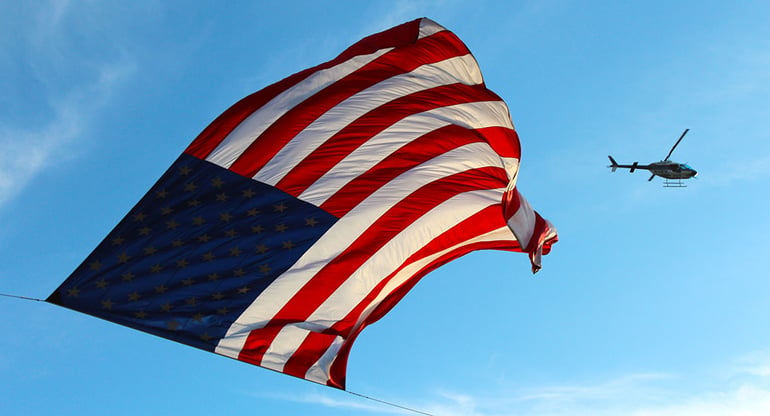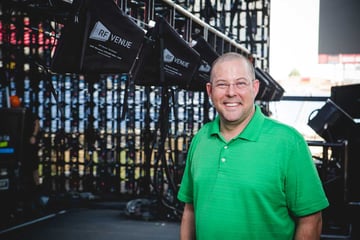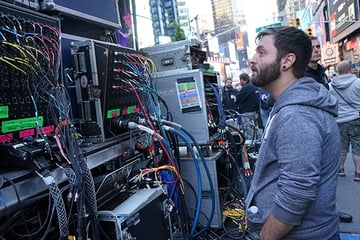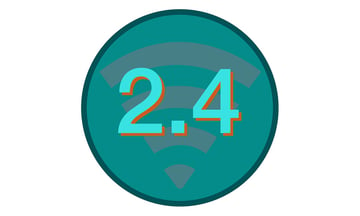- Products
- All Products
- RF PA Extension Kit
- Wireless Microphone Upgrade Packs
- In-Ear Monitor Upgrade Packs
- Wireless Microphone Antennas
- Wireless In-Ear Monitor Antennas
- Antenna Distribution for Microphones
- Antenna Combiners for In-Ear Monitors
- Multi-Zone Antenna Combiners
- Spectrum Tools
- Accessories, Cables and Parts
- Solutions by Venue
- Resources & Training
- Performance Tools
- About Us

With the 600 MHz auction knocking, it has never been more important for large-scale users of wireless audio devices to get a Part 74 license. Thanks to regulatory changes, publicly available resources, and a streamlined licensing service recently launched by our partner Professional Wireless Systems, getting a license is easier than ever.
It used to be that only those working in the broadcast and film industries could get one of these. Good news arrived last year when FCC broadened eligibility criteria to include professional sound companies and operators of large venues that routinely use 50 or more wireless microphones. Now, just about every wireless “power user” has access to licensed status.
Getting licensed allows more powerful transmitters (up to 250 mW) and priority registration on the TVBD white space database, which protects against interference from TVBDs.
But there is another seldom discussed benefit that is just as relevant.
“As an industry we need to be better represented in the FCC’s system,” says Cameron Stuckey, of Professional Wireless. “One of the reasons the 700 MHz range was taken back so abruptly was that when the FCC did their due diligence and examined the spectrum they found only a couple hundred licensed Part 74 users and said ‘great, this isn’t going to bother anyone.’”
Cameron explains that when it comes to voicing opinions on pending regulations, users who have a callsign have big advantages over those who don’t.
Anyone who buys a wireless microphone off the shelf is by default operating as a Part 15 or “unlicensed” user. Were such a user to submit a comment on a Commission item, from the perspective of the FCC they seem like “just an average citizen,” he says.
“It’s a totally different paradigm when you have 500 licensed users of the spectrum voicing the same opinion compared to 500 ordinary citizens trying to sway the FCC. If you file a comment and you have a callsign as a licensed user they are required to read through your comment and take it seriously in the debate.”
If you value your ability to operate lots of wireless post-auction, it behooves you to hop on the license train ASAP both for the technical and political benefits a license potentially provides.
You can apply for a license on your own, especially if you are a location sound mixer or broadcast professional. That path is well trodden and there is even a handy step-by-step guide prepared by IATSE 695 for those who want to go it alone.
But even those who do qualify and are aware of licensure have been hampered by the bureaucratic requirements of the application process, along with technical glitches that plague the FCC’s tragically outdated online software.
PWS spares organizations (for which the process is slightly different than the IATSE link above) from facing off with this notoriously difficult process.
“We have a true turnkey system for getting licensed,” explains Cameron. “There is a brief security form, just like if you were buying anything else, where you put in your name and mailing address and a few other details.”
PWS then handles the rest, and your license arrives a number of weeks or months later.
The service is offered at a flat rate of $600, which includes the FCC’s $160 filing fee. Contact PWS at FCClicensing@professionalwireless.com for more information.
Leading image courtesy Christopher Skor.
Tag(s):
Knowledge Guides
Alex Milne
Alex Milne was Product Marketing Manager and Digital Marketing Manager for RF Venue, and a writer for the RF Venue Blog, from 2014-2017. He is founder and CEO of Terraband, Inc., a networking and ICT infrastructure company based in Brooklyn, NY., and blogs on spectrum management, and other topics where technology,...
More from the blog

CP Beam Antenna
Jason Glass Talks Wireless for the 2015 CMA Music Festival
5 min read
| June 25, 2015
Read More

2.4 GHz CP Beam
RF Venue Antennas Support Times Square Musical Festival
1 min read
| December 15, 2014
Read More

2.4 GHz CP Beam
Everything You Need to Know about 2.4 GHz Wireless Microphones
5 min read
| January 27, 2015
Read More
Subscribe to email updates
Stay up-to-date on what's happening at this blog and get additional content about the benefits of subscribing.
